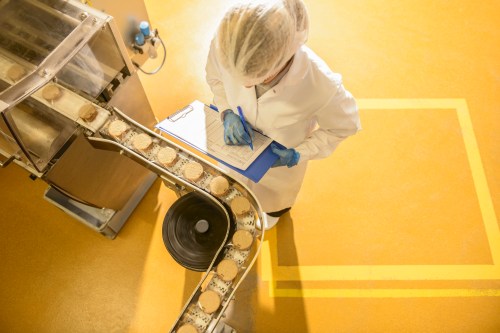Our editors independently select these products. Making a purchase through our links may earn Well+Good a commission
Over the years, we’ve learned that coffee—the first and most essential drink of the day for many of us—has its pros and cons. But does coffee cause inflammation?
Experts in This Article
gastroenterologist and author of The Gut-Immune Connection
medical director at Oasis Wellness and Rejuvenation Center
leading functional medicine specialist
Well, it’s complicated. One study conducted by researchers at Stanford University and published in the journal Nature Medicine found that the more caffeine that people older than 85 consumed, the more protected they were against chronic inflammation. However, other research shows that caffeine can also increase catecholamines, neurotransmitters that are involved in the body’s fight-or-flight stress response, and, if prolonged, could lead to inflammation.
When we think about inflammation, it’s usually not in a positive way. There’s good reason for that: Chronic, long-term inflammation is the root cause of health ailments both minor (like acne) and major (like cancer, cognitive decline, and persistent gut issues). One of the simplest ways to keep inflammation in check is to think before we eat—or drink.
So you might find yourself Googling, “does coffee cause inflammation?” But know that the answer isn’t as straightforward as you might think. Here, three doctors and inflammation experts explain why caffeine can cause inflammation in some people while working to lower it in others.
Does drinking coffee cause inflammation in the body?
To understand how your body reacts to caffeine, first think about any underlying health issues you may have. Anxiety, for example, can cause the heart to beat faster, and that prolonged stress on the heart could lead to chronic inflammation, specifically in the form of cardiovascular disease. “Caffeine can stimulate catecholamines, and if you are someone who suffers from anxiety and palpitations or irregular heart rhythms, stimulating catecholamines can exacerbate your symptoms,” Eudene Harry, MD, the medical director for Oasis Wellness and Rejuvenation Center in Orlando, explains. “Otherwise, most individuals who do not have these conditions, based on many studies done to this point, can tolerate moderate caffeine consumption.”
Outside of underlying health conditions, consider how quickly your body metabolizes caffeine. “If someone is a slow metabolizer [which is determined by genetics], they may experience an inflammatory reaction or a spike in the stress hormone, cortisol,” says Will Cole, DC, a leading functional medicine expert and the author of The Inflammation Spectrum. “This can be an issue, especially with adrenal fatigue [severe, chronic stress, the adrenal glands] and other hormone problems. Some people have an initial spike in cortisol from caffeine but gain tolerance over time, while others don’t adapt to caffeine.”
How coffee compares to other caffeinated drinks
While, chemically, Dr. Cole says that caffeine acts the same regardless of how you consume it (coffee, soda, tea… you get it), there may be hidden pros and cons in your drink. “The source can have other problems or benefits associated with it that can further perpetuate inflammation or help soothe it,” he says. For example, green tea has powerful catechins like EGCG that have been shown to help drive down inflammation. But regular soda that contains added sugars like high-fructose corn syrup can increase inflammation.
Coffee, though, is one caffeine source that’s been shown to provide benefits from moderate, regular consumption to those without underlying health issues. One paper published in TheBMJ that reviewed 201 various studies links regular coffee drinking to lower incidents of cancers and neurological, metabolic, and liver conditions, all of which are manifestations of chronic inflammation.
Dr. Cole says the quality of the coffee matters, too. Pesticides, storage facility cleanliness, and fungi infections all can lead to coffee bean pollution, which can cause inflammation. So if you can afford to, buy organic to minimize exposure to those factors.
Signs of inflammation in the body
Curious if your coffee consumption is lending to not feeling so hot day in and day out? While it would be lovely to pinpoint the exact symptoms of coffee-induced inflammation, gastroenterologist Emeran Mayer, MD, author of The Gut-Immune Connection, says it’s not that simple.
“The problem is that systemic immune activation (metabolic endotoxemia) does not cause any symptoms (just like high blood pressure), but is a serious risk factor for the development of many chronic non-communicable diseases, including colon cancer, early cognitive decline, heart disease, and metabolic syndrome,” he explains.
That said, according to the Cleveland Clinic, common, personally-detectable signs of inflammation in the body include: abdominal pain, chest pain, joint pain, fatigue, fever, and/or rashes. Of course, these symptoms can be the result of many, many ailments, so it may be difficult to pinpoint if coffee consumption is the culprit. To find out, though, you could consider counteracting caffeine by opting for an anti-inflammatory, non-caffeinated beverage, instead. Dr. Mayer suggests fermented drinks, like kombucha, kefir, and yogurt beverages. “These drinks have been shown to decrease inflammatory markers in the body and improve the health of the gut microbiome,” he says.
Can decaffeinated coffee trigger inflammation?
If you’ve been considering coffee’s impact on inflammation, you may be wondering if decaffeinated coffee offers the same pros and cons. Since the beverage still contains polyphenols, research shows that decaffeinated coffee offers a host of health benefits—not deterrents. In fact, since decaffeinated coffee doesn’t cause jitters, some might even say that it’s the better option, as it won’t exacerbate underlying inflammatory conditions like anxiety.
Looking for proof? In a study published in Frontiers in Microbiology, researchers found that “both coffee and decaffeinated coffee are effective for sleep deprivation-induced depression-like behaviors and the dysbiosis of gut microbiota and indicated that caffeine may be not the only key substance of coffee for regulating gut microbiota.” So, if you’re looking to boost your diet with antioxidants without exposing yourself to caffeine, enjoying a daily cup of decaf joe is definitely worthwhile.
Are there anti-inflammatory compounds present in coffee?
Remember, not everyone will have an inflammatory response to caffeine (thank goodness). In fact—as we mentioned above—many people can actually benefit from regular caffeine consumption. According to Dr. Mayer, there’s a reason for that.
“Coffee contains a high concentration of polyphenols, large molecules that require metabolism by the gut microbiota into absorbable molecules with multiple health benefits, including an anti-inflammatory effect,” he explains. “The main polyphenols in coffee are caffeine, chlorogenic acid, diterpenes, and trigonelline.” This is notable because, as he points out, polyphenols (aka the anti-inflammatory compounds in coffee) are the molecules responsible for giving diets high in fruits and veggies many of their healthy benefits. Because of that, he says that polyphenols are “probably also responsible for the many health benefits that are associated with regular consumption of coffee.”
Another benefit of caffeine consumption? According to Dr. Mayer, “regular polyphenol consumption has been shown to increase the diversity of the gut microbiome.” In fact, according to an article published in the peer-reviewed journal, Antioxidants, authors revealed that regular polyphenol consumption is so beneficial for the gut that it can help maintain bodily functions and even affect the progression of diseases like diabetes and inflammatory bowel disease.
Suffice to say, coffee’s impact on inflammation isn’t always a negative one, hence why an estimated one billion people worldwide consume it—including folks in the Blue Zones (aka the areas of the world with the longest-living people).
To drink or not to drink?
Here’s what the three doctors want everyone to keep in mind: For many people, moderate caffeine consumption from coffee and tea is likely going to provide more benefits than harm. But if you find yourself feeling anxious or your heart beating quickly after enjoying something with caffeine, that’s a sign that you likely want to minimize your intake. “Bio-individuality makes it impossible to make a blanket statement that all people should or shouldn’t avoid caffeine,” Dr. Cole says. If you’re unsure of how caffeine is affecting you, talk to your doctor.
Here’s what a registered dietitian thinks of drinking coffee every day:
Sign Up for Our Daily Newsletter
Get all the latest in wellness, trends, food, fitness, beauty, and more delivered right to your inbox.
Got it, you've been added to our email list.










